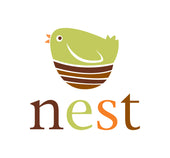After awhile we may notice our wool garments have lost some of their naturally water-repellant properties. This is because some of the lanolin, the natural sheep oil that performs this function, has been lost from washing and wearing.
This wool care agent contains wool grease, olive soap, sugar tenside, lecithin, botanical concentrator and natural essential lavender oil. The wool care agent softens woollen garments which have lost their natural oils in use (e.g. frequently washed nappy panties) and protects the wool fibre from premature wearing, allowing wool to better maintain its moisture-absorbing quality and softness.
With natural wool wax and organic olive oil soap
- For restoring the deficient protective hydrolipidic film to garments made from wool and silk
- Returns the natural elasticity to woolen fabrics
- Fragrance of essential lavender oil made from certified organic cultivation
- 100% biodegradable
Can be used in water up to 30 °C (86 °F).
120 ml.
Special product feature:
The wool wax used is of pharmacopoeial quality. Thanks to the inclusion of olive-oil soap and sugar surfactant, Wool Care may also be used, without problems, in areas with hard-water.
The olive oil and the essential oil of lavender are 100% derived from certified organic cultivation.
Ranges of application:
For lipid replenishing of highly stressed garments made from wool and for woollen nappy pants.
Particularly important for babies’ woollen nappy pants which, due to the natural wool-wax content, collect the dampness from the diaper while still remaining permeable to air. If babies’ woollen nappy pants are washed, they lose their naturally occurring wool fat. Regular application of Wool Care replenishes the wool with the wool wax it needs for proper functioning.
Dosage for woollen nappy pants:
Dissolve 1–2 tablespoon of Wool Care in hot water and fill up to approx. 1 litre (34 fl oz US) using cold water. Place the moistened woollen nappy pants into the lukewarm solution, wash through several times and leave to soak for about ½ to 1 hour. Rinse in lukewarm water, press out and leave to dry on a towel.
Dosage for stressed woollen clothing, such as jackets, milled jackets, wool-felt hats, jumpers, etc.:
Dissolve ½ teaspoon of Wool Care in hot water and proceed as described above.
Wool Care can also be used in the washing machine. To this end, dissolve ½ teaspoonful of Wool Care in approx. 30–40 ml (1–1.4 fl oz US) of hot water and pour the solution into the fabric softener compartment of the washing machine.
- Natural wool fat (pesticide-free) 15–30%
- Olive-oil soap, certified organically grown 15–30%
- Sugar surfactant 5–15%
- Cetyl alcohol 1–5%
- Plant-based thickening agent <1%
- Citrate <1%
- Essential lavender oil, certified organically grown <1%
- Balsamic additives, certified organically grown /
- collection from wild-growing plants <1%
- Water up to 100%
List of ingredients as per EC 648/2004
Aqua, lanolin, potassium soap*, alkylpolyglucoside C8–C16 (coco glucoside), cetyl alcohol, polysaccharide (xanthan gum), sodium/potassium citrate, parfum*, linalool*
*certified organically grown
Origin and properties of the ingredients
Wool wax is obtained from freshly shorn sheep’s wool that underwent a special process to remove any pesticide and herbicide residues. In order to be well dispersed in the water and to adhere to the fibres, the wool wax must be emulsified into fine droplets using olive-oil soap and sugar surfactant. Sugar, coconut oil and palm oil are the raw materials used to manufacture sugar surfactant. Olive soap results from the chemical reaction between olive oil and lye (alkaline solution). Olive oil is the best oil raw material for making mild lipid-replenishing plant-based soap. Its well-balanced composition of fatty acids, its healing balancing effect on the cardiovascular system, and the remarkable growth of the olive tree in a 7-year cycle are evidence of the special proximity and relationship of this oil to humans. Cetyl alcohol–obtained from palm oil – and the plant-based thickening agent enhance the emulsifying effect of sugar surfactant and olive oil soap.
- Technical data
- Density: 20 °C approx. 0.99 g / cm³
- 68 °F approx. 0.035 oz / in³
- pH value: 20 °C, 5 g / litre H₂O
- 68 °F, 0.18 oz / 34 fl oz US H₂O
- approx. 7–8
Biodegradability
The raw materials wool wax and cetyl alcohol are, in finely emulsified state, readily micro-biodegradable. Soap made from vegetable oils has one outstanding feature compared to all the other active washing substances, namely that, right after its use, it reacts chemically with the limescale always present in waste water, forming calcium soap, thus neutralising its effect on live organisms (primary degradation). The calcium soap is then, micro-organically, 100% degraded into carbon dioxide and water (secondary degradation). Despite the fact that during the manufacturing of sugar surfactants, constituents are being extracted from the plant-based raw materials starch, sugar, and fat, they remain completely intact in their chemical structure. For this reason it is so easy for the microorganisms to 100% decompose these surfactants into CO₂ und H₂O very rapidly. Soap, sugar surfactant, and cetyl alcohol are classified as being readily biodegradable according to OECD guidelines.
Suitable for septic tanks and filtration systems.
Certification:
Packaging:
- Bottle: PE
- Label, cap: PE / PP
- Outer carton: 100% recycling material
Made in Germany.









































